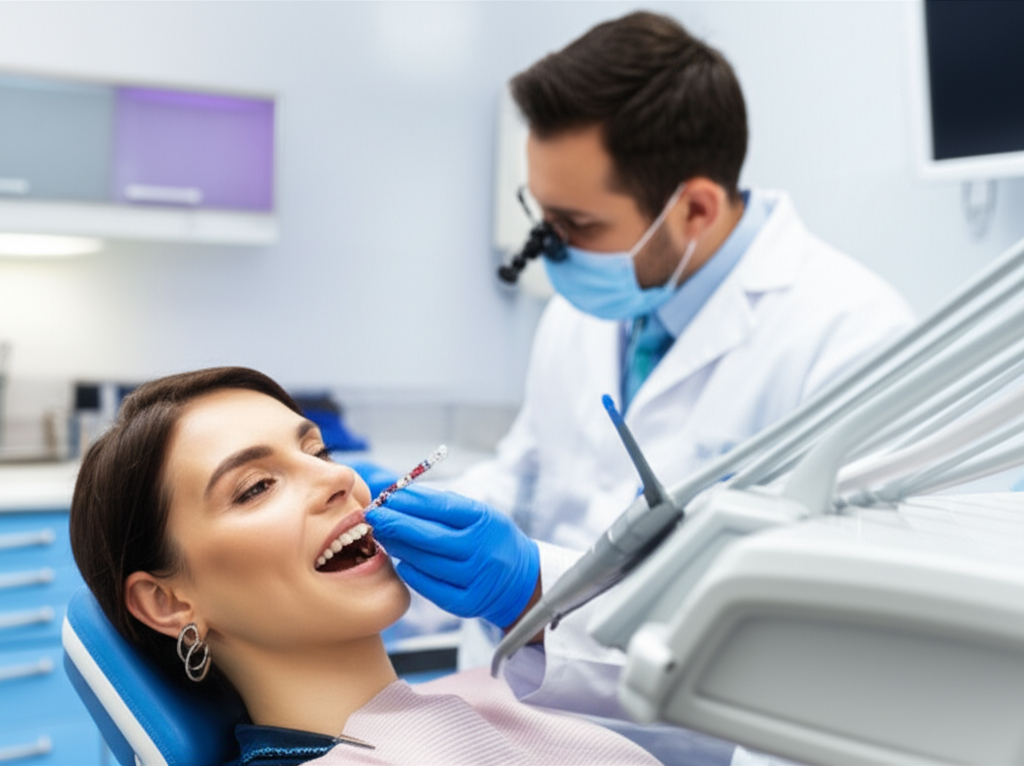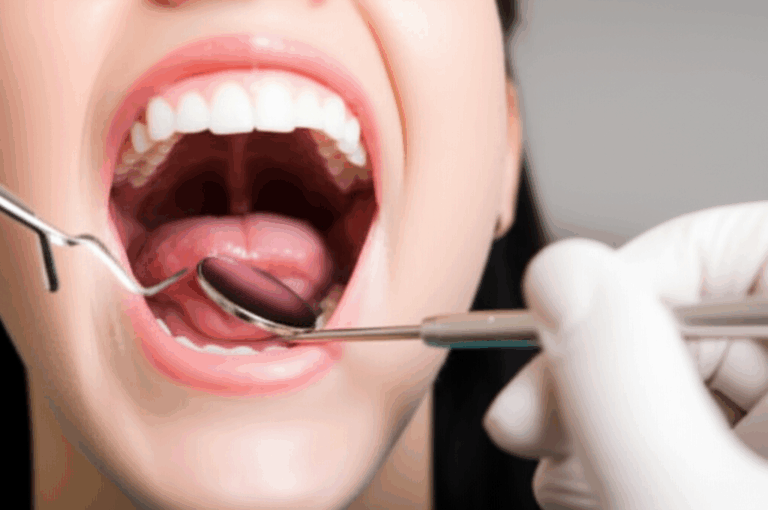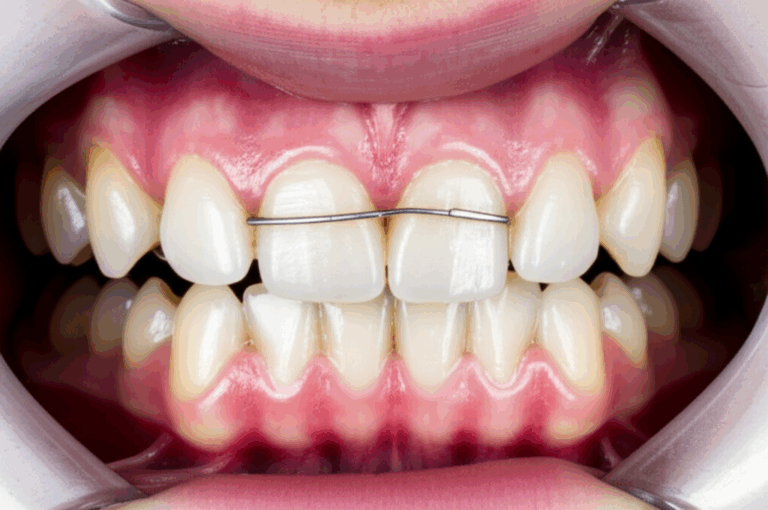
Can Dentists Administer Botox? Understanding Regulations, Training, and Dental Applications
Summary:
Are you wondering if dentists can give Botox? In this article, I’ll walk you through this big question. You’ll learn when and where dentists can use Botox, how they get ready to give it, how Botox helps with dentist problems like jaw pain or a gummy smile, and why safety matters. This guide is full of easy info to help you make smart choices. If you want to know about dental Botox, you’re in the right spot!
Table of Contents
What Is Botox and Why Do People Want It?
Let’s start simple. Botox is a medicine made from something called botulinum toxin. Lots of people think Botox is just for smoothing out wrinkles or looking younger. But did you know it can also help with other problems? Dentists use Botox for things like sore jaws and teeth grinding.
Why do people care so much? Because it works fast, barely hurts, and can make you feel or look better almost right away. Imagine smiling without showing too much gum, or being free from jaw pain you’ve had for years. That’s why more people talk to their dentist about getting Botox.
Can Dentists Legally Give Botox?
Here’s the main question: Can your dentist give you Botox? The short answer is yes—but it’s different in every state. Dentists in most places in the U.S. can give Botox, but each state dental board writes its own rules. In some places, dentists can give Botox only if it’s for a dental problem like TMJ (jaw pain) or teeth grinding. Others let dentists use it for looks too, like smoothing lines around your mouth.
> Problem: The rules are hard to follow and different everywhere.
> Agitate: You don’t want to get Botox from someone who isn’t allowed or doesn’t know what to do.
> Solution: Learn what your state’s dental board says, and only go to a dentist who follows the rules.
Why Are Dentists Good at Giving Botox Injections?
Dentists understand faces and mouths. Every day, they work on teeth, gums, jaws, and all the muscles nearby. Here’s why dentists are a good pick:
- Face Experts: Dentists know about the muscles, nerves, and bones in your face and mouth.
- Good at Shots: They give injections all the time, like numbing your mouth before fixing a tooth.
- Care About Looks and Function: Dentists try to make you look better and help your mouth work like it should, like fixing your bite or your smile.
- Know Their Patients: Dentists usually know their patients pretty well, so you can trust them to listen.
So, if you want someone who really knows your face, dentists are a great choice.
What Training Do Dentists Need for Botox?
Here’s a fact—dentists can’t just start giving Botox by watching a video online! They have to go through special training courses, usually with the American Academy of Facial Esthetics (AAFE) or International Academy of Facial Aesthetics (IAFA). What’s that training like?
- Learning facial anatomy: Dentists need to know exactly where to put the medicine.
- Practice on real people: They have to get hands-on time, with teachers watching, to make sure they’re safe.
- Safety lessons: They learn how to spot and stop bad reactions or mistakes.
- Know the medicine: Dentists study how Botox works and what it can and can’t help with.
The training is usually about 8 to 16 hours with practice, then a test. When you pick a dentist for Botox, always ask about their training!
What Are the Rules in Different States?
This is where it gets tough. Every state makes its own rules for dentists and Botox. Here’s what usually counts:
- Therapeutic Botox: Used for medical needs like TMJ, jaw pain, or teeth grinding.
- Cosmetic Botox: Used to improve looks, like getting rid of lines or fixing a smile.
In more than 40 states, dentists can use Botox in some way, but some only let them do it for dental problems, not for beauty.
Here’s a short table to sum it up:
| State | Therapeutic Botox | Cosmetic Botox | Special Rules |
|---|---|---|---|
| California | Yes | Yes | Extra courses needed |
| Texas | Yes | Yes | Hands-on practice |
| Florida | Yes | No | Dental problems only |
| New York | Yes | Yes | Courses & tell the board |
| Others | Varies | Varies | Ask your local board |
Always call your state dental board or ask the dental office if you’re not sure.
How Do Dentists Use Botox for Dental Problems?
Botox isn’t just for your skin. Dentists use Botox to help with:
- TMJ/TMD (Jaw Trouble): Botox helps relax the jaw muscles and can stop pain and clenching. Most people feel way better!
- Teeth Grinding (Bruxism): Less tension in the jaw, fewer headaches, and your teeth don’t wear down as fast.
- Face Pain: Chronic pain in the face or jaw can get better with the right Botox shots.
- Big Jaw Muscle (Masseter Hypertrophy): Botox can make a thick jaw muscle smaller, helping with pain or look.
- Gummy Smile: If your top lip lifts up too much, Botox can relax it so less gum shows when you smile.
Yes, dentists can also use Botox for smile lines or wrinkles around the mouth—but only if law says it’s okay.
If your jaw hurts or you grind your teeth, see a professional dentist for help. Sometimes using a night guard or getting the right dental work from a digital dental lab might help too or even take the place of Botox.
Does Botox at the Dentist’s Office Hurt or Cause Problems?
Getting any shot can pinch a bit, but most people only feel a small sting with Botox at the dentist. Dental offices are all about being safe—clean, quiet, and set up just right for care.
But, like any medicine, Botox can have side effects:
- Bruising
- Red or swollen spot for a day or two
- Headache
- Very rarely, a droopy eyelid
Most problems are small and go away soon when the dentist follows safety rules. If you have any allergies or take other medicines, always tell your dentist first.
How Do I Pick the Right Dentist for My Botox Treatment?
Choosing who gives you Botox really matters. Here’s how to pick well:
- Check their training. Your dentist should have a Botox certificate—look for AAFE, IAFA, or another real group.
- Look at before & after pictures. Good dentists have photos of their real work.
- Ask how much experience they have. How many years or times have they done Botox?
- Read what others say. Check out reviews from other patients online.
- Have a real talk. Tell your dentist what you want, ask what to expect, and share any worries.
- Double-check their background. Your dentist’s training and experience count.
Remember, it’s your face! Only trust someone really trained in safety and skill. For more dental solutions, a professional china dental lab can work with great dentists to help your results.
What Are the Benefits of Getting Botox from a Dentist?
Why pick a dentist and not just a skin doctor or nurse at a spa for your Botox?
- Smile Overhaul: Dentists can fix your teeth, gums, and the muscles that show when you smile. It’s all in one visit!
- Place Botox just right: They know where the little muscles in your face and mouth are.
- Help you feel better and look better: Dentists can stop jaw pain or help you look younger—sometimes both at once.
- You already trust them: Your dentist takes care of your smile, so it makes sense to trust them with your face too.
Dentists and their teams can also help you before or after Botox, and with crowns, bridges, or night guards from a crown and bridge lab.
FAQs: Quick Questions About Dentists and Botox
Q: How is getting Botox from a dentist different than getting it from a skin doctor?
A: Both need training. Dentists really know the mouth and jaw, so they’re great if you want Botox for jaw problems or making your smile better.
Q: Will insurance pay for Botox for TMJ?
A: Sometimes! Ask your dentist to check. Beauty Botox isn’t usually covered, but sometimes TMJ or teeth grinding treatment is.
Q: How long does dental Botox last?
A: Most people see it work for 3–6 months, depending on what it’s for.
Q: Can any dentist give Botox?
A: Only if they’re trained and have the right certificate. Always ask before you start.
Q: Are there reasons someone shouldn’t get Botox at the dentist?
A: Yes. People with nerve or muscle problems, allergies, or who are pregnant/breastfeeding might be told no. Your dentist should always ask about your health first.
Key Points to Remember
- Dentists can give Botox in most states, but always check your state’s rules.
- Go to a dentist with special Botox training and the right certificate.
- Dental Botox isn’t just for looks—it can fix jaw pain, teeth grinding, and a gummy smile.
- Getting Botox at the dentist is safe if you pick the right expert.
- Talk to your dentist about your health and your goals before trying Botox.
- Your smile and teeth look best with help from modern dental labs that make new materials for cosmetic dentistry.
References
- American Dental Association (ADA) info
- State Dental Board websites
- American Academy of Facial Esthetics (AAFE)
- International Academy of Facial Aesthetics (IAFA)
- Dental articles from journals like Journal of Oral & Maxillofacial Surgery
- Grand View Research
- Patient stories and reviews online
If you’re thinking about feeling better or boosting your confidence with Botox—or just have more questions—don’t be shy about asking your dentist. You should always have answers you can count on!








